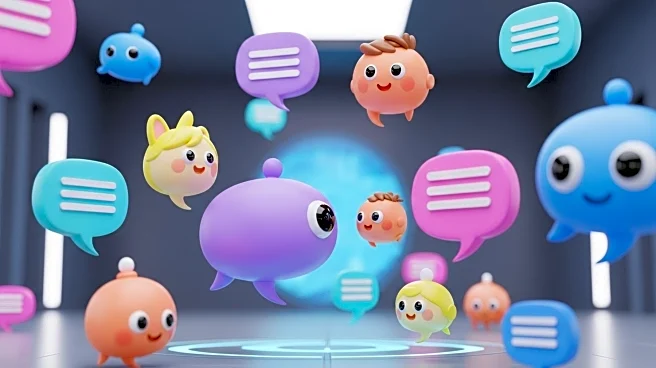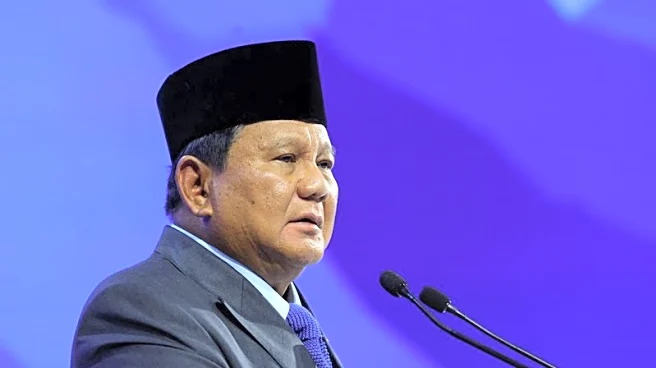What's Happening?
A survey by Pew Research reveals that children as young as kindergarten age are engaging with AI chatbots like ChatGPT and Gemini. The survey found that 3% of parents reported their children aged 5 to 7 had used a chatbot, with usage increasing among older children. Additionally, 40% of parents said their children under 12 used voice assistants like Alexa and Siri. The use of AI by children has raised concerns, particularly following incidents where AI was implicated in negative outcomes, such as a lawsuit against OpenAI after a family's tragedy.
Why It's Important?
The integration of AI into children's screen time represents a significant shift in how young people interact with technology. While AI can offer educational benefits, it also poses risks, including exposure to inappropriate content and the potential for forming unhealthy relationships with AI-generated personalities. The broader societal implications include the need for parental guidance and regulation to ensure children's safety and well-being in the digital age.
What's Next?
As AI becomes more prevalent in children's lives, there may be increased calls for regulatory measures to protect young users. Companies like OpenAI may continue to develop parental controls and safety features to address these concerns. Additionally, educational programs for parents on managing AI interactions could become more common, helping families navigate the complexities of AI technology.
Beyond the Headlines
The cultural impact of AI on children includes the potential for altering social dynamics and communication patterns. As children grow accustomed to interacting with AI, there may be long-term effects on their social skills and emotional development. Ethical considerations also arise regarding the role of AI in shaping young minds and the responsibility of tech companies in safeguarding children's experiences.









